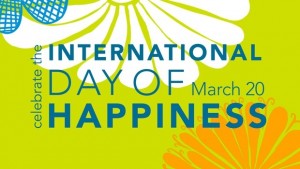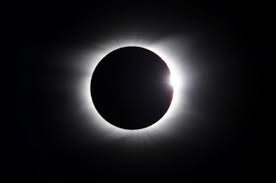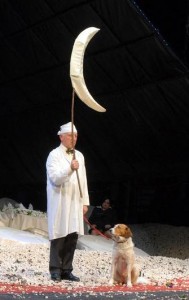On the morning of Friday 20 March the UK will experience a near-total eclipse of the sun. Even where skies are not clear, the sky will darken and we will experience a sort of twilight. The birds will fall silent until the light returns. The moon, travelling across and partly or totally obscuring the face of the sun is one of the most powerful of events. In many cultures eclipses were terrifying. Vikings believed that wolves were eating the sun, the Chinese thought they predicted the death of the Emperor, and the ancient Greeks thought eclipses were signs that the gods were angry, and about to visit destruction on humans.
We don’t know that Shakespeare ever experienced a full solar eclipse. There was a partial eclipse in 1590 and a more major one on October 12 1605, which is probably what he refers to in King Lear, where the Earl of Gloucester predicts “These late eclipses in the sun and moon portend no good to us… Love cools, friendship falls off, brothers divide. In cities, mutinies; in countries, discord; in palaces, treason; and the bond crack’d ‘twixt son and father.”
After killing her, Othello suggests Desdemona’s murder was an act so serious that:
Methinks it should be now a huge eclipse
Of sun and moon, and that the affrighted globe
Should yawn at alteration.
It’s not the only celestial event: at the moment there is a “supermoon” which means the moon is close to the earth making it appear larger than usual. Othello also refers to this phenomenon, blaming the moon’s influence for the rash of murders.
It is the very error of the moon,
She comes more near the earth than she as wont,
And makes men mad.
This weekend is also the spring equinox. Throughout the play it’s plain that Othello is superstitious, claiming the handkerchief he gives Desdemona has magical power. Apparently some Christian ministers believe the conjunction of these three events predict the beginning of the end of the world. Superstition, it seems, is not dead.
The moon is mentioned many times by Shakespeare, in many different contexts, and no play is more full of references to it than A Midsummer Night’s Dream. One of the Mechanicals, Starveling, represents the Moonshine by which the lovers Pyramus and Thisbe met. “This lanthorn doth the horned moon present”. At their first meeting, Oberon addresses Titania with the bad-tempered “Ill met by moonlight, proud Titania”, and even before that Hippolyta has made the link between the moon and marriage.
And then the moon, like to a silver bow
New-bent in heaven, shall behold the night
Of our solemnities.
In one of the last speeches of the play, where the fairies bless three newly-married couples, Puck reminds us of the moon’s more malign influence:
Now the hungry lion roars,
And the wolf behowls the moon,
Whilst the heavy ploughman snores
All with weary task fordone.
 In spite of this, no play has a happier ending than A Midsummer Night’s Dream, and Friday 20 March 2015 is also International Day of Happiness. The focus this year is on the importance of human connection, and the isolation felt by many in modern society. Most of Shakespeare’s comedies leave at least one character out of the celebrations: Malvolio in Twelfth Night, Jaques in As You Like It, Shylock and Antonio in The Merchant of Venice. It’s hard to find real happiness in the ending of The Taming of the Shrew, though that is at least partly down to modern sensibilities. A Midsummer Night’s Dream, though, leaves all the couple married, Oberon and Titania reconciled, and, presumably, the Mechanicals rewarded for their play.
In spite of this, no play has a happier ending than A Midsummer Night’s Dream, and Friday 20 March 2015 is also International Day of Happiness. The focus this year is on the importance of human connection, and the isolation felt by many in modern society. Most of Shakespeare’s comedies leave at least one character out of the celebrations: Malvolio in Twelfth Night, Jaques in As You Like It, Shylock and Antonio in The Merchant of Venice. It’s hard to find real happiness in the ending of The Taming of the Shrew, though that is at least partly down to modern sensibilities. A Midsummer Night’s Dream, though, leaves all the couple married, Oberon and Titania reconciled, and, presumably, the Mechanicals rewarded for their play.
A boisterous Bergomask dance is followed by the fairies’ blessing. Nothing helps to promote a happy mood more than music, in Shakespeare and elsewhere. We all know how much music influences how we feel, Cleopatra calling it “moody food /Of us that trade in love”. In the theatre it has long been used at the end of a play to leave the audience happy. Happiness-inducing songs have been featured on Radio 4 this week along with a discussion about the power of music over our moods.
While on the subject of A Midsummer Night’s Dream, there’s a great opportunity coming up for someone to pursue a fully-funded PhD on A Midsummer Night’s Dream: A Play for the Nation. It will be a collaboration between the Shakespeare Institute of the University of Birmingham (located in Stratford) and the RSC, with the aim of studying the nationwide tour of the play that is one of their 2016 projects. A different set of local amateur actors will impersonate the “rude mechanicals” at each venue. Partner theatres are all round the country from Truro and Canterbury in the south to Belfast, Newcastle-upon-Tyne and Glasgow. The student will “research this rich and complex artistic and social event. Granted access to planning meetings, rehearsals, documentation and performances, the student will study the methods and processes of the RSC and its amateur partners and produce a PhD thesis about their interactions: at the same time the student will be trained in academic theatre history and cultural studies by the university.” Full details are here: applications must be in by 17 April.
Have a wonderful, happy day!



